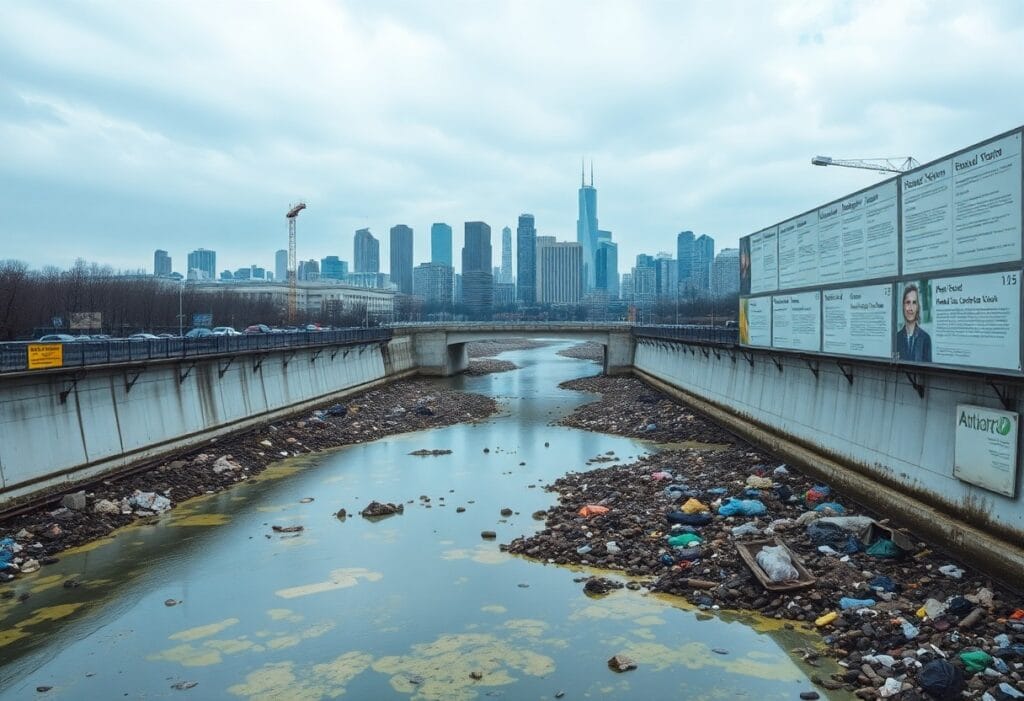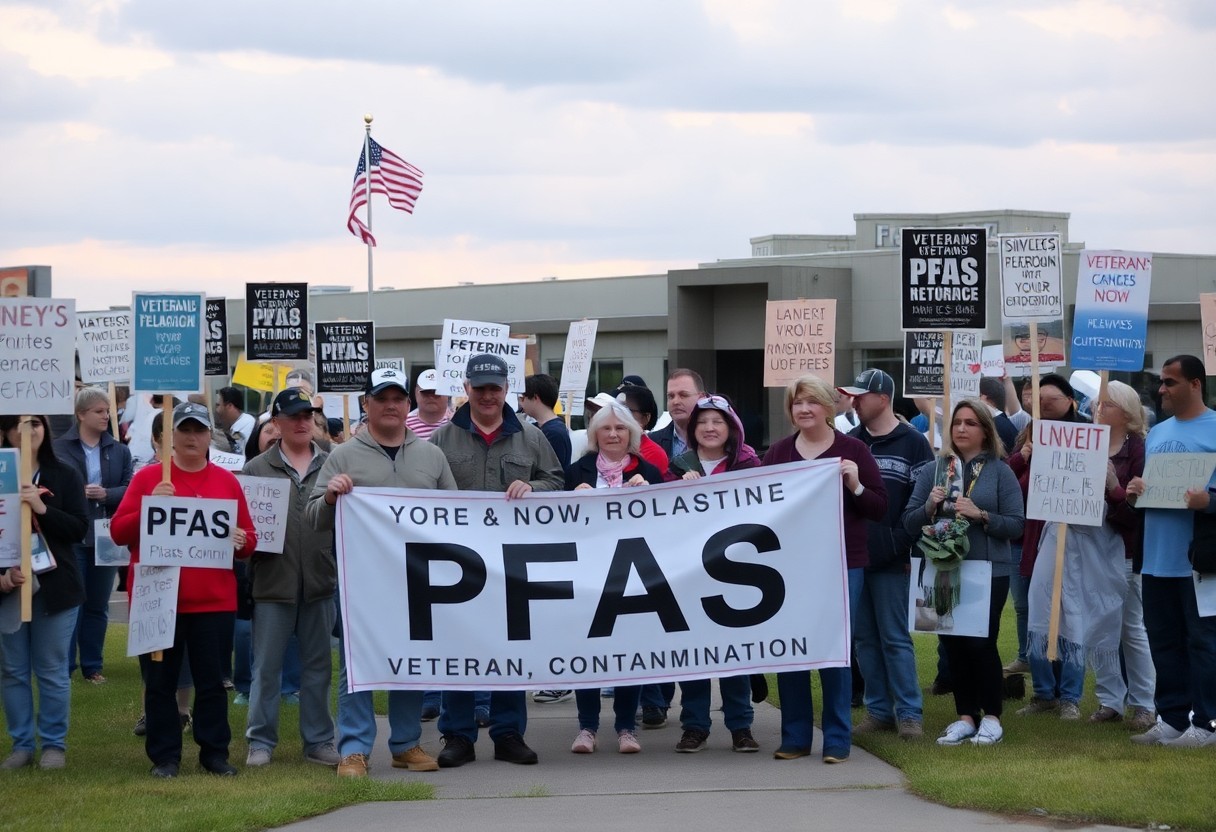You are about to explore the complex history behind Fayetteville’s water crisis, specifically how Chemours, a chemical manufacturing giant, has influenced the situation. In this informative timeline, you’ll discover the events leading up to the contamination of your local water supply and the health risks associated with per- and polyfluoroalkyl substances (PFAS) released into the environment. As you investigate into the timeline, you will gain a clearer understanding of both the negative impacts on the community and the steps taken to address this pressing issue.
Background on Chemours and Fayetteville
The history between Chemours and Fayetteville has been marked by environmental challenges stemming from the manufacturing of chemicals, particularly contaminants like GenX. You can explore the intricate timeline of these events through GenX – An Interactive Timeline. Understanding this background is vital in grasping the implications for your community’s water supply.
Overview of Chemours
Background on Chemours reveals a company born from DuPont, specializing in chemical manufacturing. This transition occurred in 2015, positioning Chemours to produce a variety of fluorinated chemicals, notably those linked to significant environmental and health concerns. You should acknowledge the role this corporation plays in your area’s ecological landscape.
Water Supply Sources in Fayetteville
Sources of water in Fayetteville primarily include the Cape Fear River and various well systems. These sources deliver vital drinking water to residents, underpinning the importance of water quality. You need to be aware that pollutants entering these systems can have severe consequences for community health.
With the Cape Fear River serving as Fayetteville’s primary water source, a significant portion of your drinking water originates from this river, along with groundwater from local well systems. It’s alarming to note that various contaminants, especially from industrial activities, threaten this vital supply. The presence of harmful chemicals in your water can pose serious health risks and calls for urgent scrutiny and action to safeguard your community’s wellbeing.
Emergence of Contamination Issues
It soon became evident that Fayetteville was facing significant water contamination problems, primarily linked to the operations of Chemours. As the public began to uncover the environmental impact of chemical releases, concerns surged regarding the safety of local drinking water. These contamination issues prompted community discussions, investigations, and a growing awareness of the potential health risks associated with the pollutants.
Initial Reports of Water Contamination
Any indications of water contamination were met with alarm, as residents reported unusual tastes and odors. Local news outlets began documenting these concerns, drawing attention to the possibility that hazardous substances, including PFAS, were infiltrating the water supply, raising urgent questions about public health.
Community Responses and Concerns
Initial reactions from the community included a mix of outrage and anxiety as residents demanded answers regarding the safety of their water. You may have noticed local organizations mobilizing to raise awareness, leading to town hall meetings where residents voiced their fears about potential health impacts. Activists and concerned citizens pushed for transparency from both Chemours and local authorities, advocating for clean water and comprehensive testing to identify the extent of the contamination.
It is critical to understand that community responses were fueled by a genuine concern for public safety. Local advocacy groups organized forums to educate residents about water quality issues, and many began independently monitoring their water. The growing unease highlighted a disconnect between government assurances and the community’s lived experiences, amplifying calls for immediate action to rectify the contamination and prevent any long-term health risks. Your engagement in these discussions helped shape a unified voice demanding change.

Regulatory Actions and Investigations
Some investigations into Chemours’ activities revealed a long history of environmental concerns in Fayetteville, particularly concerning the contamination of local water sources. State and federal regulators took action, aiming to understand the extent of the pollution and hold Chemours accountable. These regulatory efforts involved rigorous scientific testing and community outreach to ensure that impacted residents were informed about potential health risks associated with the contaminated water supply.
State and Federal Involvement
Involvement from state and federal agencies became imperative as officials recognized the urgency of the situation. They initiated a series of assessments to evaluate the safety of Fayetteville’s water, while also enforcing strict regulations on Chemours to mitigate further contamination. These agencies collaborated with environmental experts to establish guidelines aimed at protecting public health and restoring trust within the community.
Key Findings from Research Studies
About the investigations, numerous studies conducted by environmental scientists unveiled alarming levels of perfluoroalkyl substances (PFAS) in Fayetteville’s water supply. These chemicals are linked to serious health issues, including cancer and immune dysfunction. The findings provided substantial evidence of Chemours’ practices and firmly established the need for action to safeguard your water quality.
Hence, these studies highlighted key dangers, revealing that the levels of certain toxins exceeded safety thresholds set by health authorities. This information underscored the immediate risk to residents, urging officials and community leaders to implement measures for remediation. The findings acted as a catalyst for further regulations and community awareness initiatives, reinforcing the importance of transparency and proactive measures to ensure safe drinking water for you and your family.
Timeline of Events
All events related to Chemours and the Fayetteville water crisis have played a significant role in shaping the situation. Key dates mark the introduction of harmful chemicals, community reactions, and the evolution of public awareness. This timeline highlights how various incidents unfolded, showcasing the connection between corporate practices and local environmental challenges you may find informative.
Major Incidents and Milestones
Along the timeline, you will discover incidents that raised alarms and spurred community activism. Notable milestones include the public’s revelation of PFAS (per- and polyfluoroalkyl substances) contamination in local water sources, demonstrations demanding accountability from Chemours, and legal actions taken against the company that reshaped public perception and policy responsiveness.
Changes in Policy and Regulation
Above all, changes in policy and regulation have played a pivotal role in addressing Fayetteville’s water crisis. These shifts reflect growing awareness about environmental safety and the need for accountability within industries you rely on.
Regulation surrounding chemical discharges has become stricter in response to public outcry and scientific findings about PFAS. Your safety is now prioritized as legislation aims to limit toxic substances in water supplies. Recent measures have included mandatory testing of water samples and stricter permit requirements for industries like Chemours. While these steps represent progress, ongoing vigilance from both the community and government is crucial to ensure that your water remains safe and clean.
Impact on Local Communities
Now, the repercussions of Chemours’ actions ripple through the fabric of Fayetteville’s communities. As the water crisis unfolded, trust in local authorities waned, leading to a sense of insecurity among residents. Families grappled with uncertainty as they faced challenges in accessing clean water, significantly affecting their quality of life and overall well-being.
Health Implications for Residents
Before the crisis, many residents were unaware of the potential health risks associated with contaminated water. As reports emerged, you learned about links between hazardous chemicals in the water and various health issues, increasing anxiety about long-term effects on your family’s health.
Economic Consequences for Fayetteville
On the economic front, the water crisis has had a profound impact on Fayetteville. You may have noticed businesses struggling due to the decline in tourism and a decrease in new investments as a result of public distrust in water quality.
In fact, the financial strain extends beyond immediate business losses. With ongoing legal battles and potential fines looming over Chemours, taxpayers could face higher costs to replace and upgrade infrastructure. You might see rising utility bills to fund important projects aimed at restoring confidence in your water supply, placing an additional burden on already struggling families and the local economy.
Moving Forward
Despite the ongoing challenges from the water crisis, there is a growing commitment to address these issues effectively. You can read a Closer Look at Chemours Fayetteville Works PFAS Fables for a deeper understanding of the situation. It’s time for the community to unite, implement sustainable practices, and hold accountable those responsible for the environmental impacts that have plagued Fayetteville.
Remediation Efforts
One of the key steps in addressing the contamination involves extensive remediation efforts. These initiatives focus on cleaning up the affected water sources and restoring safe drinking water for the community. By investing in advanced filtration systems and deploying cleanup technologies, your local authorities aim to reduce toxic substances and ultimately improve water quality.
Future Monitoring and Regulation
Against the backdrop of this crisis, it’s imperative to establish robust monitoring and regulatory frameworks. The community needs ongoing vigilance to ensure the safety of air and water quality moving forward.
Moving forward, it is vital that you advocate for transparent reporting about water safety and implementation of strict regulations on PFAS emissions. Increased monitoring can detect potential hazards early while also taking steps to inform you about necessary precautions for health safety. Your involvement in community discussions and support for legislative initiatives can help drive more responsible corporate practices and protect public health.
Summing up
Taking this into account, you now have a clearer understanding of how Chemours has significantly influenced Fayetteville’s water crisis over time. The timeline illustrates the key events and decisions that have led to the current situation, highlighting the interplay between corporate actions and community health. By being aware of these developments, you are better equipped to engage in discussions about environmental responsibility and the importance of safeguarding public resources for the future.


















